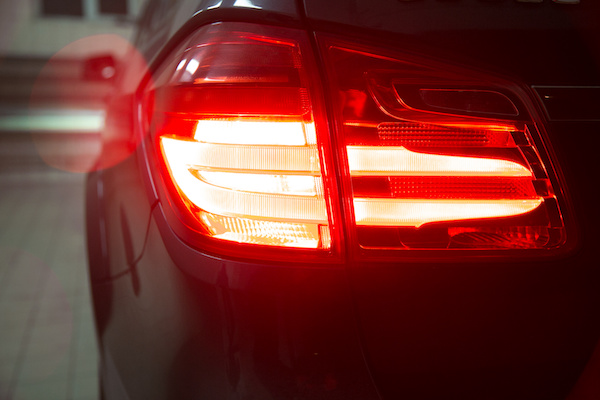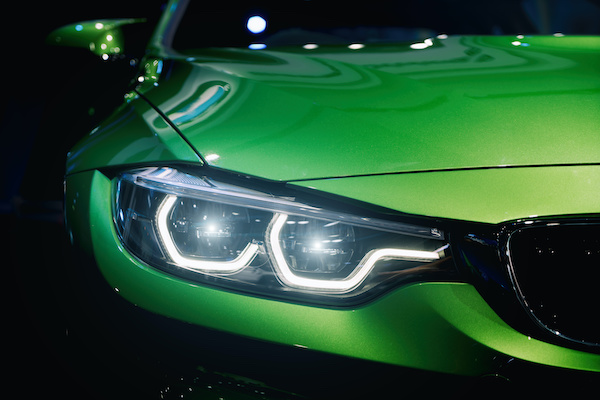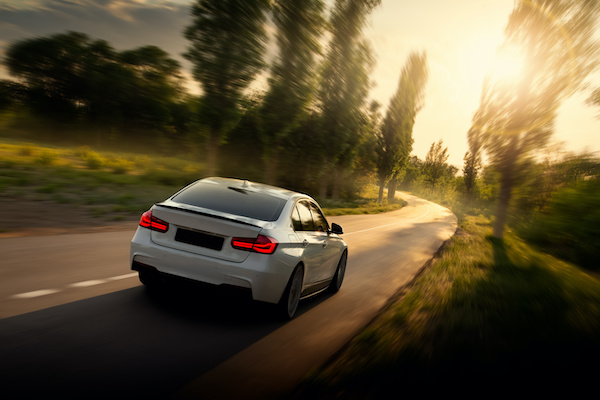Posted on 6/21/2021

Your headlights and brake lights are arguably the most important exterior features of your car. The headlights provide a light source for night driving, while the brake lights signal to other drivers when you're stopping or slowing down. For those reasons, these particular sets of lights must always be functioning whenever you drive. Over time, your lights can crack, fog up through water damage, or face an electrical problem. Fortunately, headlight maintenance is generally an easy fix for our technicians. Here are some headlight/brake light care tips that you can follow: EXAMINE THE LIGHTS The starting step to proper headlight and brake light maintenance is to conduct regular, frequent inspections of the lights. This can be a swift walk-around where you check the lights for any failures, uneven dimness, and other defects. For brake lights, it can be trickier since you'll need an extra person to step on the brakes. If something looks out of order or n ... read more
Posted on 5/18/2021
.jpeg)
Most drivers rarely think of their cars' power steering fluid. Some are not even aware of when or how often they should replace it until their steering system develops a problem or a mechanic recommends it. Still, they are not sure if it is really necessary. The power steering system plays two vital roles. It transfers the hydraulic power required to steer your vehicle wheels back and forth, lubricates and preserves the components in constant motion within the system. Do You Really Need to Replace Your Power Steering Fluid? Unlike most other fluids, the power steering fluid does not burn off easily. All the same, over the days, dirt particles and sludge accumulates in the fluid, contaminating it. Once it gets dirty, the fluid puts extra stress on the fluid pump and the entire system. If left unattended, it could cause extensive and costly damages. Here are a few ways to know that your car requires a power steering replacement: Check Out the Owner's Manual ... read more
Posted on 4/22/2021
.jpeg)
For your vehicle engine performance to be at optimum, the plugs must consistently transmit an electrical signal to the ignition coil. After that, the ignition coil ignites the mixture of air and engine cylinders to propel your car. It is essential to check them regularly to ensure that they remain perfect for your ignition and combustion system to work efficiently. Always consult your mechanic for professional advice because different cars require a specific spark plug with a distinct spark plug gap for the fuel to burn efficiently. Common Symptoms of Worn-Out Spark Plugs Take your vehicle for inspection regardless of assurances, even if your car manufacturer warrants because spark plugs can wear out. Here are the common symptoms that your car's spark plugs need replacement: Slow Acceleration If your car accelerates sluggishly than usual, spark plugs may be faulty. For most modern vehicles, the ignition system is the main reason for slow acceleration. The spark plug, made of th ... read more
Posted on 3/10/2021

BMW is a prestigious brand that is a favorite to many. Its high-tech features and lavish interiors make it stand out among most luxury vehicles. However, there's a need to be incognizant of the problems that may arise while owning such an exceptional car. Cooling System Failure A cooling system secures the engine from suffering high temperatures in order to ensure the car runs efficiently. The cooling system may fail as a result of the wear in the plastic and other components used to make the water pumps. Though the components are durable, they cannot last forever, considering the number of times the engine needs to be cooled down after heating up. Engine Oil Leaks Just as blood is vital in running your body, it is with oil in a car. In most cases, the oil may exit the system as a result of a damaged oil pan that was ruined by an obstruction such as rocks. It is easily damaged as it is right beneath the car, so much attention while driving could save you the hassle. Dead Batte ... read more
Posted on 2/18/2021

Drivability basically means a vehicle's ability to drive. Opinions might vary as to which vehicles drive better, but there are condition checklists that help technicians to converge their opinions. Here are some of the things on that list: Will The Vehicle Turn Over With The Key? When you turn the key in the vehicle, does it start? If there is no response, that's a no-crank. On the way to starting, some of the functions, like the radio, the heat and air, and other such things should startup. If that doesn't occur, it could be because of a dead battery or other such things. Does The Engine Stall Or Die After Starting? Once the engine starts, that's a good first step, but will it stay running smoothly? If it stalls out or dies, that doesn't make the vehicle as drivable as it would if the engine runs smoothly. Some of the issues of stalling out could be addressed through maintenance. If there are bigger problems, the vehicle would ... read more